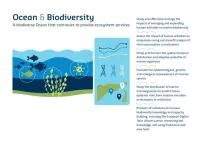(Press-News.org) A new study from Karolinska Institutet shows that heart failure mortality has decreased in Sweden over the last 20 years. The study has been published in the European Journal of Heart Failure.
A national study has shown that heart failure mortality has decreased in Sweden over the last two decades. Despite these improvements, the prognosis for heart failure patients remains worrying – 25 percent of those diagnosed in 2022 died within a year.
“Our results suggest that advances in heart failure treatment over the past decades have reduced heart failure mortality, both at the population level and for individual patients. This is an encouraging message for the continued implementation of existing treatments, which are still underutilised, as well as for the development of new treatments,” says senior author Gianluigi Savarese, Associate Professor of Cardiology at the Department of Medicine, Solna, Karolinska Institutet.
The study showed that the improvements were more marked in patients with heart failure with reduced left ventricular function, where several life-prolonging treatments have been developed in recent decades. For patients with heart failure and preserved left ventricular function, where evidence-based treatment options are limited, improvement was slower.
“These results show the great need for research into new treatments for patients with heart failure and preserved left ventricular function, who make up about half of the heart failure population,” says the study's first author Felix Lindberg, postdoctoral fellow at the Department of Medicine, Solna, Karolinska Institutet and continues:
“But this study also gives hope that recent advances in heart failure treatment can continue to improve the quality of life and survival of heart failure patients in Sweden.”
The next steps in the research include using the Swedish Heart Failure Registry to proactively identify patients with heart failure who need intensified treatment.
The study was funded by the Swedish Heart-Lung Foundation and has no reported conflicts of interest according to the researchers.
Publication: “Trends in heart failure mortality in Sweden between 1997 and 2022”, Felix Lindberg, Lina Benson, Ulf Dahlström, Lars H Lund, Gianluigi Savarese, European Journal of Heart Failure, online October 28, 2024.
END
Heart failure mortality declining in Sweden
2024-10-28
ELSE PRESS RELEASES FROM THIS DATE:
Understanding how mutations affect diseases
2024-10-28
Many statistical models and algorithms used by scientists can be imagined as a “black box.” These models are powerful tools that give accurate predictions, but their internal workings are not easily interpretable or understood. In an era dominated by deep learning, where an ever-increasing amount of data can be processed, Natália Ružičková, a physicist and PhD student at the Institute of Science and Technology Austria (ISTA), chose to take a step back. At least in the context of genomic ...
Quality control in artificial photosynthesis: validating natural antenna mimicry
2024-10-28
Humans can do plenty, but plants have an ability we don’t: they make energy straight from sunlight, a superpower called photosynthesis. Yet new research shows that scientists are closing that gap.
Osaka Metropolitan University researchers have revealed the 3D structure of an artificial photosynthetic antenna protein complex, known as light-harvesting complex II (LHCII), and demonstrated that the artificial LHCII closely mirrors its natural counterpart. This discovery marks a significant step forward in understanding how plants harvest and manage solar energy, paving the way for future innovations in artificial ...
When science speaks in extremes
2024-10-28
“Vaccines are 100% safe, and anyone who doubts this is ignorant”: Have you ever come across messages like this during the pandemic crisis a few years ago? If you often feel that certain public debates—such as those on vaccines or the climate crisis—boil down to a black-and-white clash between two sides demanding, with harsh tones, unquestioning allegiance to their view, you're not entirely wrong. We are rightly accustomed to being warned about pseudoscientific misinformation and fake news, and much research has been devoted ...
Will the ocean suffer an epidemic?
2024-10-28
Written by a team of European experts from the marine sciences, Navigating the Future VI discusses how the biodiversity crisis is being played out in the Ocean. It notes that Ocean species large and small are far less well described than their terrestrial counterparts, making it harder to measure declines and their impacts. This publication provides governments, policymakers and funders with robust, independent scientific advice on future seas and Ocean research. With the COP16 on biodiversity already in full swing in Cali, Colombia, it is timely to reflect further on the need to better understand our Ocean biodiversity.
“Climate change ...
A single thin film perfectly absorbs all electromagnetic waves!
2024-10-28
The research team of Dr. Byeongjin Park and Dr. Sang Bok Lee from the Composites & Convergence Materials Research Division at the Korea Institute of Materials Science (KIMS), has developed the world's first ultra-thin film composite material capable of absorbing over 99% of electromagnetic waves from various frequency bands (such as 5G/6G, WiFi, and autonomous driving radar) using a single material.
This electromagnetic wave absorption and shielding material is less than 0.5mm thick and is distinguished by its low reflectance ...
Teens who made history with Pythagoras’ theorem discovery publish their first academic paper with new proofs
2024-10-28
In 2022, U.S. high school students Calcea Johnson and Ne'Kiya Jackson astonished teachers when they discovered a new way to prove Pythagoras’ theorem using trigonometry after entering a competition at their local high school. As a result, both students were awarded keys to the city of New Orleans, and even received personal praise from Michelle Obama.
Today they become published authors of a new peer-reviewed paper detailing their discoveries, published in the journal American Mathematical Monthly.
Pythagoras’ famous 2,000-year-old ...
More social species live longer, Oxford study finds
2024-10-28
UNDER EMBARGO UNTIL 00:01 GMT MONDAY 28 OCTOBER / 20:01 ET SUNDAY 27 OCTOBER 2024
More social species live longer, Oxford study finds
New research published today (28 Oct) from the University of Oxford has revealed that species that are more social live longer and produce offspring for a greater timespan. This is the first study on this topic which spans the animal kingdom, from jellyfish to humans.
What are the benefits and costs of sociality? Social organisms may enjoy benefits such as sharing resources, being better protected from predators, and having support to raise offspring. However, by living in more ...
Magicians don’t mind sharing the secrets behind tricks – if they are their own
2024-10-27
Magic is one of the oldest forms of entertainment, and much of its enchantment is said to rely on the audience not knowing how the tricks are done.
However, while magicians swear to keep their secrets forever when they embark on their profession they are happy to share the tricks of their trade in certain circumstances, a new study shows.
Illusionists who took part in major new research thought it was OK to expose their own techniques, but not those invented by others, and also believe it is acceptable to reveal the secrets behind tricks invented by someone who has since died.
They didn’t think it was right to share the workings of a magic trick just to gain public ...
No incentive for older birds to make new friends
2024-10-27
Like people, birds have fewer friends as they age, but the reasons why are unclear. New research suggests they may just have no drive to.
In humans, it’s often been assumed that older people have fewer friends because they’re pickier about who they spend their time with. There’s also the issue that there are fewer people of their own age around.
But it’s hard to pick apart the various potential causes for humans, so researchers have turned to animals. The team behind the new research, led by Imperial College London, studied an isolated population of sparrows on the island of Lundy, in the Bristol Channel.
By mapping the ...
Development and validation of a new prognostic model for predicting survival outcomes in patients with acute-on-chronic liver failure
2024-10-27
Background and Aims
Early determination of prognosis in patients with acute-on-chronic liver failure (ACLF) is crucial for optimizing treatment options and liver allocation. This study aimed to identify risk factors associated with ACLF and to develop new prognostic models that accurately predict patient outcomes.
Methods
We retrospectively selected 1,952 hospitalized patients diagnosed with ACLF between January 2010 and June 2018. This cohort was used to develop new prognostic scores, which were subsequently validated in external groups.
Results
The study included 1,386 ACLF patients and identified six independent ...








